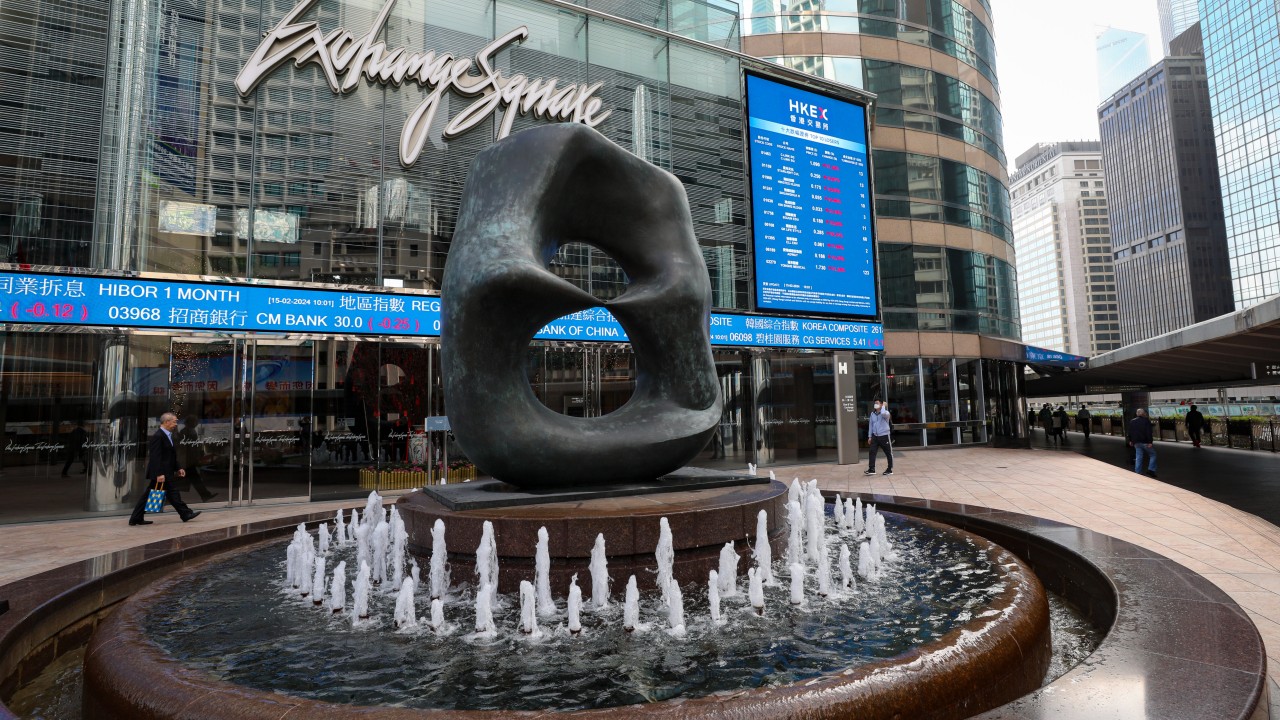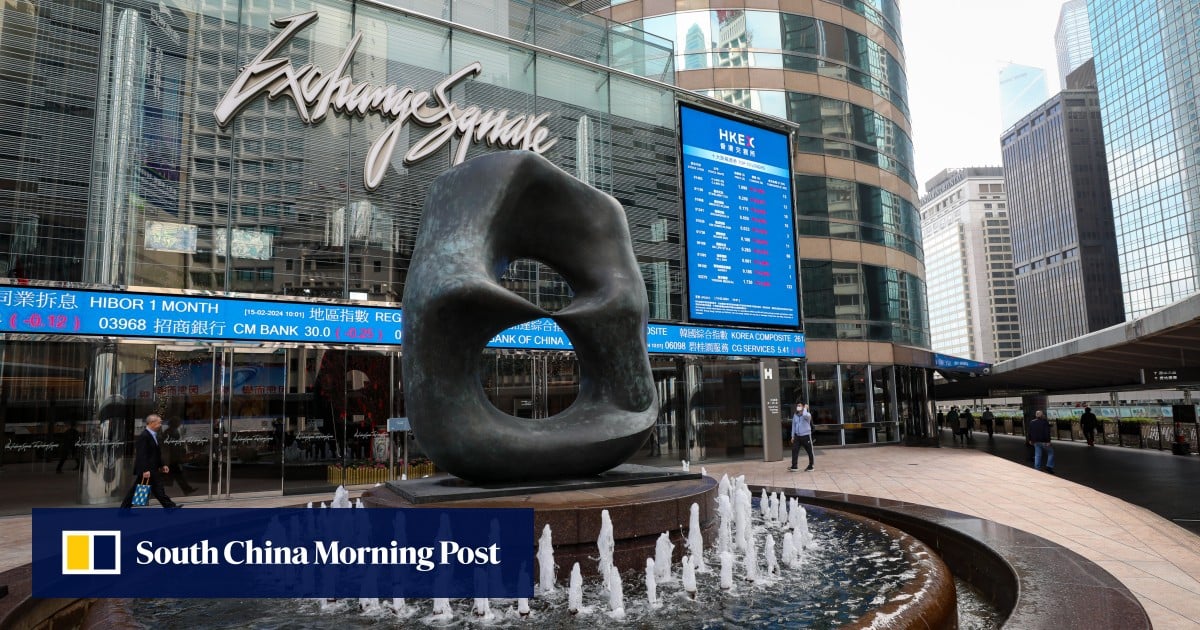04 Mar Hong Kong stocks edge up as investors await market-stabilising measures at China’s ‘two sessions’, property shares cheered by sales report
Posted at 03:10h
in
Asia
by admin

Hong Kong
stocks rose ahead of China’s annual legislative meeting where traders expect announcements to stabilise the markets and shore up the world’s second largest economy. Li Auto and BYD tumbled as the price war in the electric vehicle (EV) market intensified.
The Hang Seng Index added 0.2 per cent to 16,619.03 as of 10.50am local time after losing as much as 0.7 per cent earlier in the session. The Tech Index gained 0.2 per cent while the Shanghai Composite Index was little changed.
Baidu jumped 1 per cent to HK$102.20, Meituan advanced 1.5 per cent to HK$89.70 and gaming giant NetEase added 1.3 per cent to HK$175.10. Henderson Land gained 2 per cent to HK$22.85 and Sun Hung Kai Properties climbed 1.7 per cent to HK$80.85 amid signs
homebuyers are returning to the market. Drug maker Wuxi Biologics surged 10.4 per cent to HK$20.75 while Wuxi Apptech jumped 9.5 per cent to HK$55.
The National People’s Congress (NPC), the country’s annual legislative session that sets budgets and outlines the leadership’s plans for the economy, will kick off on Tuesday in Beijing.
Traders are now waiting for more clues as to whether the recent market rebound will be sustained and how the government plans to tackle the property market’s woes. There are wide expectations of financing and fiscal reforms as well.
Policymakers are likely to set a growth target of “around 5 per cent” for the economy, an official on-budget deficit of 3 per cent, and approve the issue of 1 trillion yuan Central Government Special Bonds to boost the economy, according to Goldman Sachs.
The Hang Seng Index climbed 6.6 per cent in February, the benchmark’s best month since January 2022 after Beijing rolled out a slew of market-boosting measures, ranging from state buying to curbs on quantitative trading. Global investors
resumed buying Chinese stocks in February after an unprecedented six months of outflows, suggesting Beijing has had
some success in restoring investors’ confidence.
Limiting gains, Tencent lost 0.2 per cent to HK$276.80, Alibaba weakened 0.9 per cent to HK$72.40 while online travel agency Trip.com dropped 1.5 per cent to HK$349.80. EV maker Li Auto tumbled 10 per cent to HK$161.20 after
sales declined for a second month amid the escalating
price wars in China’s crowded EV marker. Rivals BYD declined 0.9 per cent to HK$193.
More data out later this week is likely to show China’s economy is on the mend. The Caixin PMI Services Index, due Tuesday, is expected to rise to 52.9 from 52.7 in January. Consumer price data due Friday is likely to snap the four straight months of deflation while showing a rise of 0.2 per cent, according to economist estimates polled by Bloomberg.
Other key Asian markets were broadly higher. Japan’s Nikkei 225 climbed 0.8 per cent to breach the 40,000 level for the first time as foreign investors continue to snap up local shares amid the country’s ultra-loose monetary policy and corporate governance reforms. South Korea’s Kospi Index jumped 1.1 per cent while Australia’s S&P/ASX 200 was little changed.
Source link


